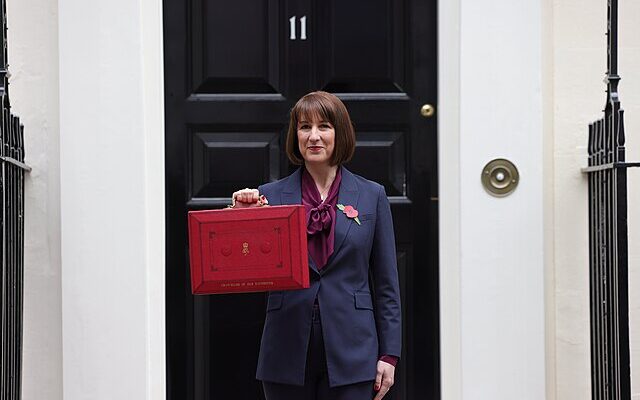
Last week Chancellor Rachel Reeves delivered Labour’s first Budget in fourteen years. The 2024 Budget lays out the government’s financial plans, offering projections for inflation and predictions for future economic growth. This comes after some controversy surrounding the government’s conduct before they officially presented the Budget to Parliament; the Prime Minister and Chancellor were reprimanded by both the Speaker and the Deputy Speaker this week after parts of the Budget were leaked to the press.
This Budget could directly impact current students’ post-graduate finances as they get ready to enter the workforce.
This Budget could directly impact current students’ post-graduate finances as they get ready to enter the workforce. Exeposé have looked into the Budget as a whole, and this article will summarise our key takeaways and how we think this is likely to impact students and those new to the workforce.
Key takeaways
The Budget projects a £40bn rise in taxation, which the Chancellor says will be used to better fund public services. Despite this, income tax and National Insurance (NI) paid by employees will remain at their current levels. To further protect workers from the stress of inflation impacting their income tax band, the Budget sets out a plan to adjust income tax thresholds in line with inflation after 2028. Reeves plans to raise NIC (National Insurance Contributions) for employers by 1.2 per cent, meaning businesses will have to pay a rate of 15 per cent in 2025.
In terms of wages, which might be relevant to those of you looking to work after graduation – or even those of you with part-time jobs now – legal minimum wage for over-21s will rise from its current rate of £11.44 per hour to £12.21 per hour after April 2025. In a bid to move towards a ‘single adult rate’ of minimum wage in the future, 18 to 20-year-olds will also see an increase in their minimum wage from £8.60 to £10 next April.
…the bus fair cap has been raised from £2 to £3 outside of London and Greater Manchester.
Perhaps more controversially, especially to suburban communities like our own here in Exeter, the bus fair cap has been raised from £2 to £3 outside of London and Greater Manchester. Changes to tobacco duty have also been announced: tobacco tax is to increase to two per cent above inflation, and to 10 per cent for hand-rolled tobacco. There will also be a flat-rate taxation of £2.20 per 10ml of vape liquid from October 2026.
More generally, the Budget plans for a 4.7 per cent increase on day-to-day NHS and education spending, and an increase of £2.9bn funding on defence. The affordable homes budget will be boosted to £500m until 2026. The UK economy is projected to grow 1.1 per cent this year, 2 per cent next year, and 1.8 per cent in 2026.
Changes to spending on education
The Budget includes £1bn additional funding for SEND students, and a £2.3bn increase in ‘core spending’ on schools. This doesn’t include the announcement of £6.7bn extra funding for capital spending on schools, referring to the increased maintenance and renovation of school buildings in particular.
One huge change announced as part of the Budget is the end of private school tax breaks. Private schools will now be charged VAT on their fees, which the Chancellor has stated will “improve standards and opportunities for the nine out of 10 children who attend state schools.” The government added that they “don’t expect that VAT will cause private schools fees to go up by 20 per cent. This is because private schools, like other businesses, don’t have to reflect the VAT increase in the amount fee payers are charged. On average, we predict the measures are likely to see fees rise by around 10 per cent.”
The Budget also includes an additional £300m spending on further education, the details of which are to be announced “in due course.”
The Budget also includes an additional £300m spending on further education, the details of which are to be announced “in due course.”
What does this mean for those of us at university, and for those preparing to enter the workforce?
For those of us who are already enrolled in higher education, the Budget won’t directly impact much in regards to costs of education (any confirmed future changes in university fees will only impact those who haven’t already started university). However, if you’re looking to enter a graduate scheme or get a job post-graduation, you might find that the adjustment of income tax brackets in 2028 will stabilise your income.
One controversial element of the Budget is Reeves’s plan to rise NI for employers, bringing with it the threat of tax incidence. There is some concern that wages will drop – or, at least, they won’t rise – in line with the government’s decision to increase employers’ NI contributions, suggesting that workers will bear at least some of the burden. This could therefore impact those of you looking to go into employment during or after university.
You can find more information on what Rachel Reeves’s first budget entails here.


